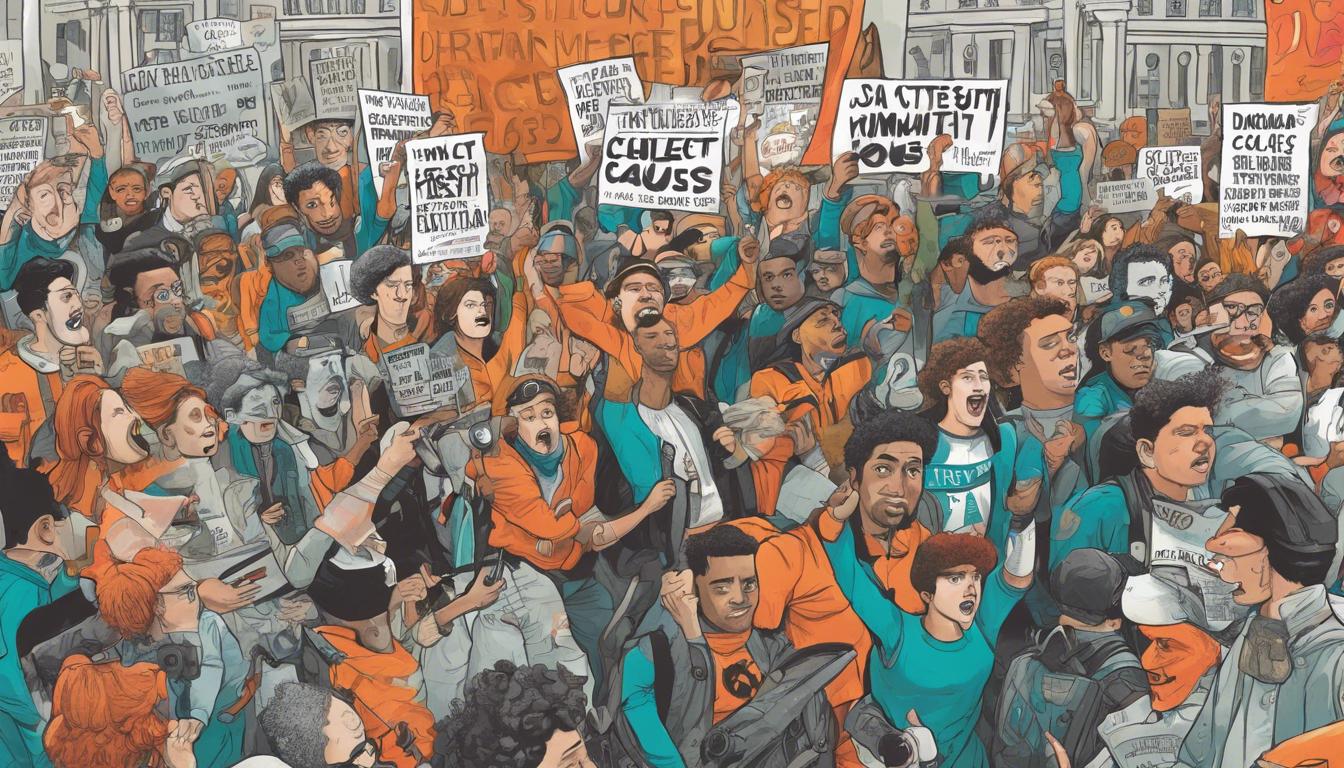A series of protests at Columbia University, initially focusing on financial ties to Israel, has expanded and intensified, drawing political figures and leading to numerous arrests.
A sustained wave of pro-Palestinian protests at Columbia University in New York and other US campuses has led to heightened tensions and a series of political interventions. The demonstrations, which initially targeted financial ties to Israel due to the ongoing conflict in Gaza, have expanded to include divestment from fossil fuel companies and major tech firms like Amazon, Google, and Microsoft. This multifaceted protest draws on the historical precedent of the anti-apartheid movement and combines climate justice with peace activism.
At Columbia University, intensified protests prompted the administration to extend negotiations with demonstrators, despite initial plans to disperse them. This decision came amid safety concerns following reports of antisemitic harassment toward Jewish students during the protests. The university’s response and the subsequent escalation of events have sparked a broader reaction, including political figures weighing in on the situation.
More than 100 arrests were made at Columbia, reflecting the scale and intensity of the protests, which have also led to faculty walkouts and classes moving online. House Republicans, including Speaker Mike Johnson and Representative Anthony D’Esposito, announced plans to visit Columbia to address the rise in antisemitic incidents and to express solidarity with Jewish students.
Amidst ongoing tensions, the US Senate passed a bill to extend aid to Israel, adding to the complex backdrop of national and international political responses. Mayor Eric Adams of New York suggested that external influences might be aggravating the protests, a claim for which there is no concrete evidence. President Joe Biden condemned the antisemitic elements of the protests while advocating for a balanced understanding of the Palestinian situation.
As debates and protests continue, Columbia University’s faculty are pushing for a reevaluation of the university president’s approach to handling the situation, urging a reaffirmation of the institution’s core values and governance principles. The situation remains fluid, with ongoing discussions and actions that could influence the future direction of university policies and broader societal responses to such complex issues.













